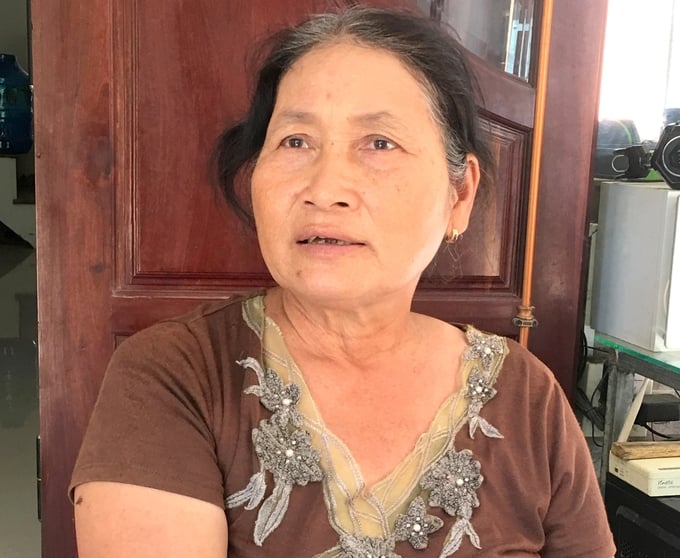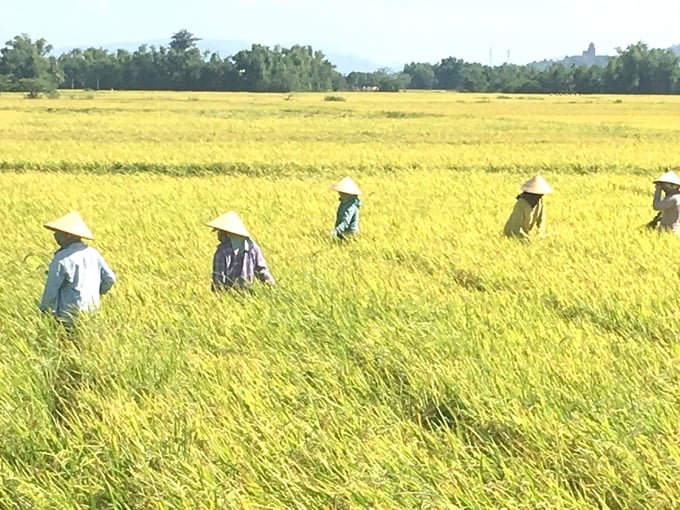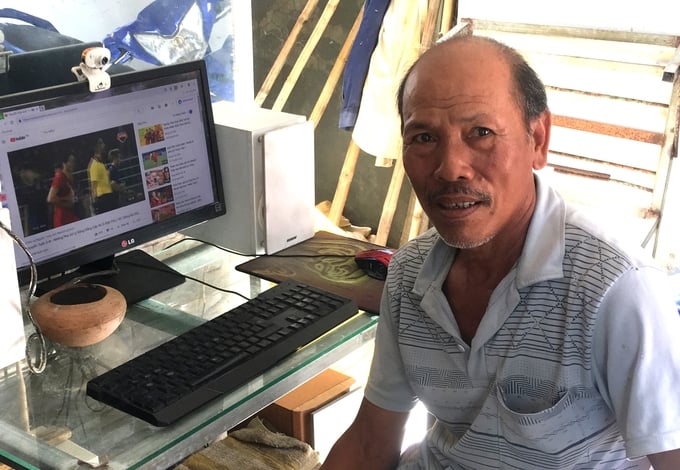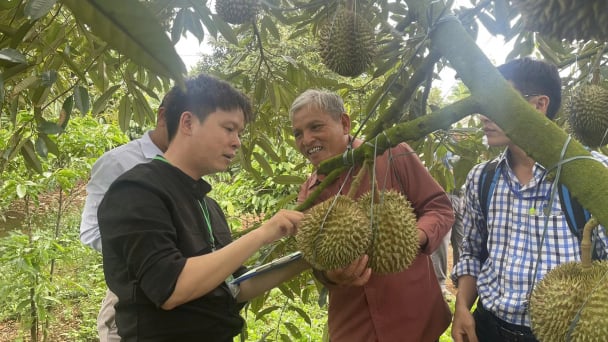May 31, 2025 | 10:12 GMT +7
May 31, 2025 | 10:12 GMT +7
Hotline: 0913.378.918
May 31, 2025 | 10:12 GMT +7
Hotline: 0913.378.918
Phuoc Hung Agricultural Cooperative, located in Tuy Phuoc District, Binh Dinh Province, has collaborated with the ThaiBinh Seed Group to establish a rice seed production and distribution chain since the 2009-2010 winter-spring crop.
According to Tran Tang Long, Director of Phuoc Hung Agricultural Cooperative, the cooperative and ThaiBinh Seed Group have maintained their rice seed production and distribution chain for nearly 15 years. This collaboration benefited from favorable local conditions, namely the convenient internal road and irrigation systems. Local farmers were initially reluctant; however, as the benefits of producing rice seed became apparent, additional households have joined the initiative over the years.

Nguyen Thi My, a resident of Luong Loc Hamlet in Phuoc Hung Commune, Tuy Phuoc District, Binh Dinh Province, shared on her experience of renting land for rice seed production. Photo: V.D.T.
"Participation in rice seed production requires a complete shift in the farmers' cultivation mindset, which encompasses planting density as well as the tending process for the rice plants. This was a challenge in the early stages of implementation when the cooperative first encouraged farmers to join the model, resulting in the cultivation of only 84 hectares in the first crop. However, as farmers recognize the benefits of the rice seed production model, more people began to participate, leading to an expansion of the cooperative's total rice seed production area," remarked Director Tran Tang Long.
The cooperative rapidly increased its production area from the initial 84 hectares in the 2009-2010 winter-spring crop over subsequent seasons. At its peak, the Phuoc Hung Agricultural Cooperative's total rice seed production area reached 400 hectares, located in the hamlets of Tan Hoi and Luong Loc. Notably, this area accounts for more than half of the local rice production area, with over 2,000 participating households. The largest seed rice production area spanned 100 hectares. Phuoc Hung Commune saw households in each of its seven hamlets participate in rice seed production, with several farmers cultivating as much as 1.5 hectares.
Nguyen Thi My, a 65-year-old resident of Luong Loc Hamlet, is an exemplary farmer in this initiative. In addition to the five sao of land allocated to her by the government, after the first few successful rice seed crops, she decided to rent an additional 17 sao from local elderly or labor-less households to expand their rice seed production. "In the first few years, my husband and I rented land at a rate of 200 kilograms of rice per sao per year, which is equivalent to 1.2 million VND per sao per year. We signed a five-year contract and paid the rent upfront. When the lease expired, we only had to renew it," Ms. My explained.
Nguyen Ba Tu, My’s 65-year-old husband, added, "My wife manages everything related to fieldwork." If she tells me to fertilize this plot, I do it; if she tells me to check on another, I comply. I simply follow her instructions while she attends all the meetings and technical training sessions. After doing this for so long, she can tell what the rice plants need or what diseases they have just by observing their growth, and then she instructs me to apply fertilizer or spray pesticides accordingly."

Farmers of Phuoc Hung Agricultural Cooperative on rice seed fields. Photo: V.D.T.
Before initiating the rice seed production model, Phuoc Hung Agricultural Cooperative collaborated with ThaiBinh Seed to develop a production process and organize training sessions for farmers. During the production process, the cooperative assigned technical staff to work alongside technicians from the company to monitor the growth, development, and pest conditions of the rice crops. Over time, as farmers became more familiar with the production process, the workload for the technicians lightened.
"When producing a specific variety of rice seed, we need to understand its background, including its common diseases, so we can advise farmers on preventive measures. Once farmers have familiarized themselves with the techniques, they can follow the process on their own. Changing the farmers' mindset is the first and most important obstacle. Namely, they must move away from the traditional dense sowing method to adopt row planting, which uses four to five kilograms of seed per sao, and follow the new tending process," explained Director Tran Tang Long.
According to Director Long's calculations, Phuoc Hung Agricultural Cooperative purchases over 1,500 tons of rice seed from farmers to supply to ThaiBinh Seed every year, with 2,700 tons being the highest level recorded. The cooperative's annual revenue reaches approximately 14 billion VND, with nearly 2.5 billion VND in added value for farmers participating in rice seed production every year. The success of the model has resulted in intense competition among farmers to lease the 5% of land managed by the Communal People's Committee for seed production.

Nguyen Ba Tu, husband of Nguyen Thi My from Luong Loc Hamlet, Phuoc Hung Commune, Tuy Phuoc District, Binh Dinh Province, can comfortably tend to 22 sao of rice fields. Photo: V.D.T.
According to Director Long, after participating in the production and distribution of rice seed for nearly 15 years, farmers in Phuoc Hung Agricultural Cooperative have significantly improved their cultivation skills. Only farmers who engage in rice seed production as a secondary source of income require reminders and updates from technical staff regarding crop growth and pest issues. Farmers who are fully committed to their fields have mastered the technical process of rice plant tending and possess a skill level similar to that of an agricultural engineer.
Phuoc Hung Agricultural Cooperative is currently collaborating with various rice seed companies to cultivate approximately 250 hectares of rice seed across two crops per year, with ThaiBinh Seed Group accounting for over 150 hectares per year.
"The implementation of the rice seed production and distribution chain has strengthened community ties among Phuoc Hung farmers, addressed disparities in crop tending techniques between households, and ensured consistent productivity and product quality across the fields. This model has increased local income levels, provided additional employment opportunities for local workers, and contributed effectively to the new rural development program," said Phan Van Khiem, Head of Tuy Phuoc District's Department of Agriculture and Rural Development.
Translated by Nguyen Hai Long

(VAN) For the durian industry to succeed, the value chain must fulfill its commitments to the government, the community, and international partners.

(VAN) Vaccinating juvenile pangasius helps reduce disease, antibiotic use, and farming costs, increasing profits for export-oriented farmers in An Giang.

(VAN) Due to a limited supply of workforce and competitive recruitment requirements, businesses struggle to retain talented veterinary human resources.

(VAN) WOAH’s guidance aims to mitigate disease risks through a One Health approach that balances economic, conservation, and public health interests.

(VAN) Ms. Nguyen Thi Dung, Deputy Director of Ngoc Hoang Cooperative, shared about the journey of bringing dragon fruit to Europe, achieving annual revenues in the billions of VND.

(VAN) Bamboo products from Thang Tho Bamboo Cooperative have reached many countries around the world, while also creating jobs for local workers.

(VAN) The Management Board of Con Dao National Park reported that a green sea turtle, tagged in the Philippines, has traveled thousands of kilometers to lay 84 eggs on Bay Canh Islet.